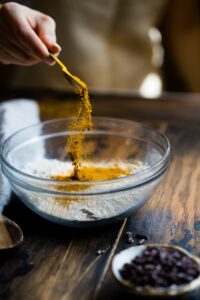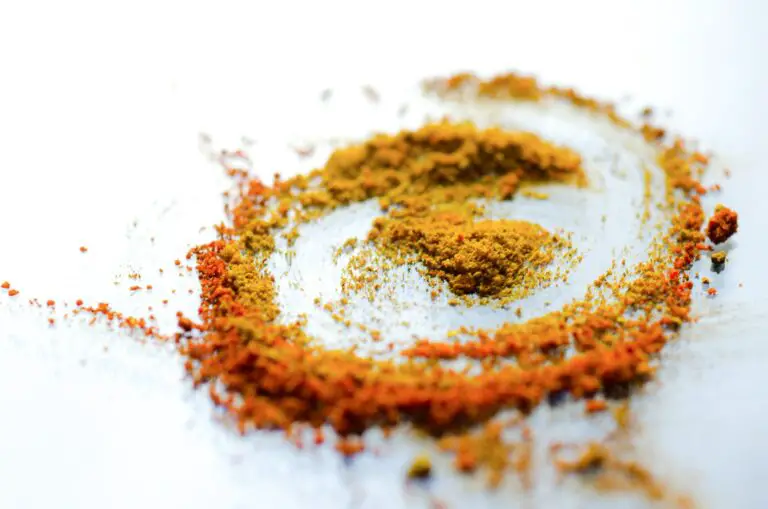Turmeric, a golden-hued spice, is making waves in the field of health and wellness, particularly for its ancient use as an anti-inflammatory agent in Ayurvedic medicine. The past decade has seen a surge in research exploring turmeric’s role in muscle repair and the countless health benefits it offers.
Turmeric contains the active compound curcumin, which carries significant anti-inflammatory properties that aid in muscle recovery. Bodybuilders, athletes, and fitness enthusiasts often suffer from exercise-induced muscle damage following strenuous workouts. This deterioration is usually accompanied by muscle soreness, inflammation, and a decreased ability to perform physically. Thankfully, the powerful properties of turmeric could be the answer to managing these discomforts more effectively.
The Importance of Muscle Repair

Understanding the body’s natural healing process after muscle-damaging exercise is crucial. When you engage in high-intensity exercise or resistance training, microscopic tears occur in your muscle fibers, prompting an inflammatory response. While this inflammation helps initiate the repair process, it is also the primary cause of delayed onset muscle soreness (DOMS). To aid recovery, the consumption of natural substances, like curcumin, can play a critical role by reducing muscle pain and promoting faster healing.
Turmeric’s Role in Muscle Repair
Vigorous physical activity often triggers exercise-induced oxidative stress, which is partially responsible for post-workout inflammation and muscle pain. Curcumin – the primary bioactive substance in turmeric – possesses potent anti-inflammatory and antioxidant capabilities.
The consumption of a turmeric supplement before or after a workout can aid in managing exercise-induced muscle damage. The supplement helps reduce inflammation and alleviate muscle soreness. It targets the inflammatory response, specifically by inhibiting the function of specific inflammatory cytokines – molecules that trigger inflammation.
Research has shown that curcumin supplementation can also mute the immune system’s response to intense exercise, leading to less inflammation and, subsequently, reduced muscle damage. One study in the ‘Journal of Sports Science and Medicine (J Sports Sci Med),’ illustrated that athletes experienced significantly less pain after taking curcumin supplements and demonstrated a rapid recovery.
Consuming Turmeric for Muscle Recovery

How much turmeric should you take to promote joint health and muscle recovery? Current research supports taking between 500-2000 mg of turmeric (specifically curcumin) per day for maximum benefits.
You can consume turmeric in various forms, such as turmeric supplements or powder. When using turmeric powder, try to pair it with black pepper or healthy fats as they can increase the bioavailability of curcumin. However, please note that if you are taking blood thinners simultaneously, it’s crucial to consult with a healthcare provider before introducing a turmeric supplement into your routine as turmeric is a natural anticoagulant.
Moreover, turmeric can be incorporated into your daily meals or beverages, such as smoothies or golden milk. A few recipes can yield slightly different tastes but retain the health benefits.
Other Health Benefits of Turmeric
Beyond the realm of aiding in muscle repair, the spice from the ginger family also presents numerous other health benefits.
As an essential component of Ayurvedic medicine tradition, turmeric is known for its potent anti-inflammatory properties. Chronic inflammation is a menacing component of many diseases, causing or worsening conditions like heart disease, arthritis, or even Alzheimer’s. Curcumin in turmeric is a natural anti-inflammatory compound that can match the potency of some anti-inflammatory drugs without the accompanying side effects. By treating the chronic inflammation at the root of these diseases, regular intake of turmeric can contribute significantly to preventing and managing them.
Taking it a step further, curcumin supplements also play a crucial role in strengthening the immune system. The immune system’s optimal function is central to maintaining overall health and warding off illnesses. By mobilizing immune cells to the site of inflammation or injury faster, curcumin can accelerate the body’s natural healing process, helping you recover quicker.
Another physiological aspect surprisingly influenced by this yellow spice is exercise performance. More and more athletes are incorporating turmeric into their diets after recent studies have demonstrated its effectiveness in enhancing exercise performance. According to a study published in ‘Medicine & Science in Sports & Exercise (Med Sci Sports Exerc),’ elite male footballers taking curcumin reported feeling less subjective soreness and maintained better performance levels during high-intensity training than their counterparts in the placebo group. This means that curcumin can not only help in muscle repair and recovery but also plays a role in preparing the body for future physical challenges, enabling athletes to deliver peak performance consistently.
Thus, turmeric, specifically its bioactive ingredient – curcumin, proves to be a multifaceted power nutrient providing an array of health benefits. From boosting immunity to managing chronic diseases and enhancing physical performance, the potential benefits of turmeric consumption are impressive and diverse. Given, more research is underway to further validate and understand these benefits. Conclusively, incorporating turmeric into your regular dietary regimen could contribute positively to your overall well-being.
Turmeric and Exercise Performance

A surprising facet of turmeric’s capabilities pertains to its potential impact on elevating exercise performance, not just aiding recovery. Athletes, professional sportsperson, and even fitness enthusiasts may be interested to learn that turmeric, or more specifically, the curcumin it contains, could provide them with a performance edge during their rigorous training or competitive events.
In a randomized controlled trial carried out on elite male footballers, it emerged that continuous curcumin supplementation could boost exercise performance. This was marked by increased stamina and endurance, enhanced resilience during prolonged strenuous activities, and an overall minimization of performance deficits during high-intensity training. These promising results can be credited to curcumin’s potent anti-inflammatory properties.
Inflammation is a natural response to muscle-damaging exercise and is also a key player in the occurrence of pain. The powerful anti-inflammatory properties of curcumin aim to manage and reduce inflammation effectively. This results in less pain experienced by athletes, enabling a quicker return to the training field, less downtime, and an overall increase in activity levels.
Simultaneously, the reduced inflammation and subsequent pain reduction due to curcumin supplementation allowed the athletes to recover faster from grueling workout sessions. Consequently, it opened up avenues for improved performance. From maintaining intensity during high-stakes matches to being able to push harder during training, the benefits of turmeric in the realm of exercise performance are worth exploring.
However, it’s important to note that while curcumin shows excellent potential in improving exercise performance, more research is needed to establish the best dosage and intake method that will optimize its benefits. Therefore, it’s always a wise step to consult with health professionals or a sports nutritionist before adding a turmeric supplement to your training regimen.
How to Effectively Absorb Curcumin

While there are many health benefits of including curcumin in your diet, it’s also important to understand how the body best absorbs this powerful compound. Studies have shown that combining curcumin with piperine, a substance found in black pepper, significantly enhances curcumin absorption. This is essential when considering how much turmeric to take for optimal health benefits.
Understanding turmeric’s role in muscle repair has significant implications for exercise enthusiasts, sports professionals, or anyone interested in a reliable, natural method for accelerating muscle recovery and reducing injury risk.
Given its many health benefits, from promoting joint health to enhancing the body’s natural healing process and even reducing oxidative stress, it’s no wonder this golden spice has generated such interest. However, while turmeric is generally safe, it’s still essential to make sure you’re consuming the right amounts and in a way most beneficial to your body – this may include supplements, cooking, or even a morning latte.
Lastly, remember to always consult your healthcare provider before making significant changes to your diet or supplement routine. Turmeric holds promising potential, and further studies will undoubtedly continue to unveil more about this golden wonder.

